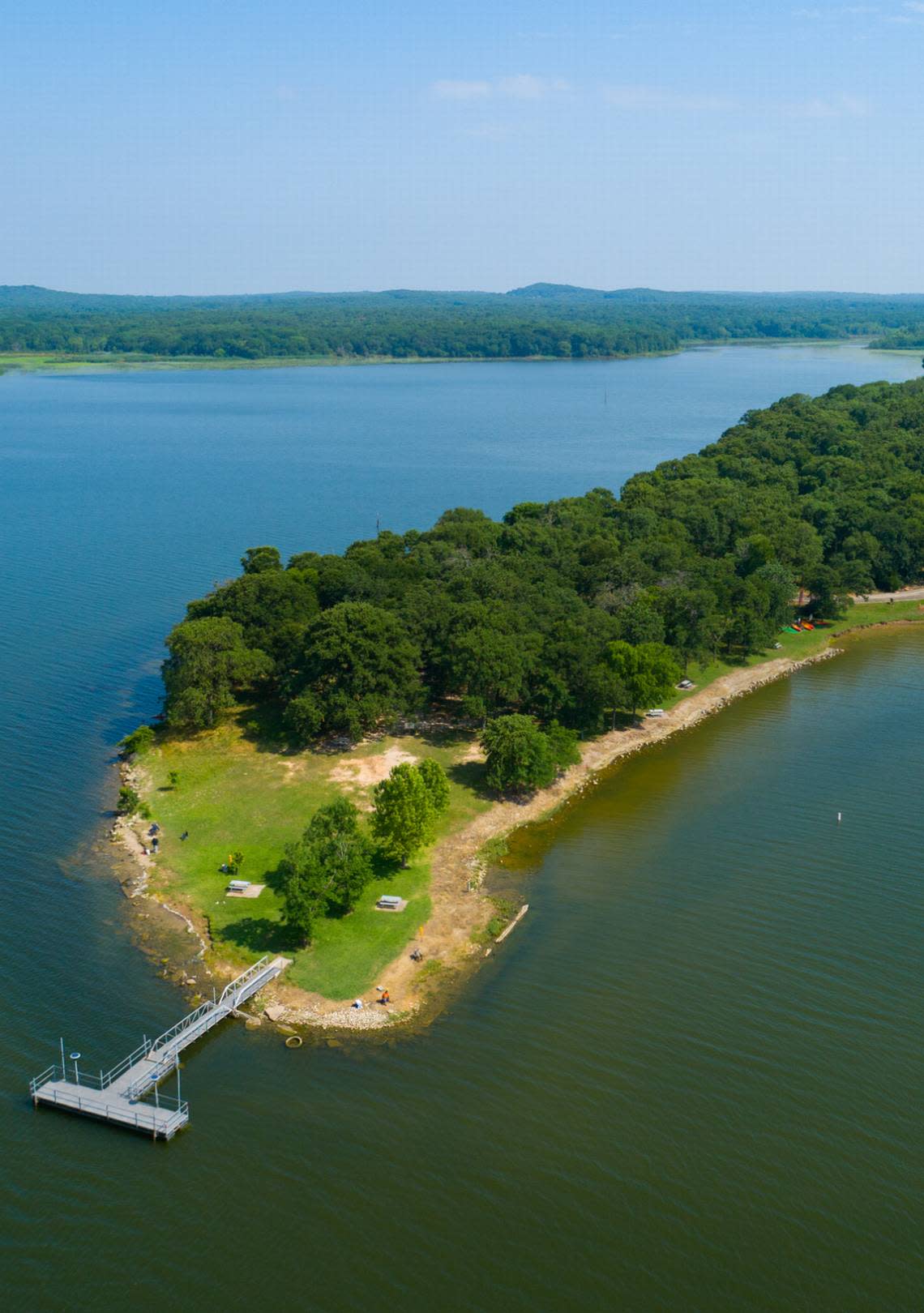Texas lawmaker drops eminent domain from bill to save Fairfield Lake State Park

The Texas legislator who first proposed a bill to use eminent domain to prevent Fairfield Lake State Park from being developed has now amended the bill to remove eminent domain references. She says she thinks the park can be saved using other tactics instead.
Rep. Angelia Orr, an Itasca Republican, explained at a Thursday morning hearing of the House Culture, Recreation and Tourism Committee that she removed eminent domain language from her bill because of concerns raised by other lawmakers.
“I understand that many of my colleagues have reservations about using eminent domain for this purpose, which is why it is not included in this substitute language,” Orr said at the hearing. “Like my colleagues, I too am a supporter of property rights, and I believe that the park can still be saved without that language included.”
She’s now instead seeking to give the Texas Parks and Wildlife Commission a say in whether the water rights on Fairfield Lake are modified, after the commission chair said at a previous hearing that the incoming developer may be planning to sell the lake’s water.
“With this process in place, I believe the lake and the park can be preserved,” Orr said at the hearing.
The hearing on the bill received a flood of public comments. Between in-person and written remarks, about 60 people weighed in on the bill, according to the committee’s notes. All of those comments were in support of preserving the park, and a number specifically mentioned support for the state using eminent domain to acquire the land.
Orr’s bill is the legislators’ first formal attempt to keep Fairfield Lake State Park open. The park, in Freestone County between the Metroplex and the city of Houston, has been open to the public for nearly 50 years. But during that time, the state has leased the park property from private owner Vistra Corp., which is a power company.
Vistra is now in the process of selling the 1,800-acre park and surrounding land — a total of about 5,000 acres — to Dallas-based developer Todd Interests. The developer plans to transform the property into a gated community of multimillion-dollar homes, potentially alongside a golf course.
The Texas Parks and Wildlife Department attempted to purchase the property, although some legislators have said that the efforts were undertaken too late in the process to be useful. At this point, Vistra is under contract on the property and Todd Interests has indicated publicly, including at a legislative hearing, that it intends to move forward with the development project.
In the meantime, Vistra has given the state notice that it must remove all personnel and property from the park by June. The Texas Parks and Wildlife Department initially closed the park’s gates to conduct that wrap-up, but then reopened the park for day use only at the urging of the House Culture, Recreation and Tourism committee.
Given the lack of clear options for averting the sale of Fairfield Lake State Park, Orr brought the idea of eminent domain to the table. But, while an expert previously told the Star-Telegram that the park would be a legally clear-cut case for eminent domain, the politics of eminent domain are murkier.
The fate of Fairfield Lake State Park presents a dilemma to some Texas Republicans, who value both public access to the outdoors and private property rights. Steering clear of those muddy waters, Orr’s amended bill would instead require approval from the Texas Parks and Wildlife Commission before any changes could be made to the water permits on Fairfield Lake.
This could help address one of the concerns raised by Parks and Wildlife officials, after current property owner Vistra applied for a water permit change, which could be used to set the stage for eventual sale of the water to parched areas of the state such as the Metroplex.
At a late February legislative hearing, Parks and Wildlife Commission Chair Arch “Beaver” Aplin III said such a setup could have devastating impacts on Fairfield Lake.
“When that happens, with my modeling, this lake is no longer the lake as we knew it,” Aplin said at the time.
Orr’s amended bill would give the state more say in that water permit process, although that input would be limited to permit changes for Fairfield Lake and the surrounding basin. It would not apply to other water permits across the state.
But Orr’s shift from eminent domain to water permits didn’t sit entirely well with some of the residents who had come to Thursday’s hearing.
Alex Ortiz, of the Sierra Club’s Lone Star Chapter, said he was “a little disappointed” by the bill amendment.
“This is actually the exact reason why eminent domain exists,” Ortiz said to the committee.
Rep. Nicole Collier, a Fort Worth Democrat, said at the hearing that she also thought acquiring the park would be a valid use of eminent domain. But she added that the water rights approach makes sense, too.
“I feel like it’s been tied together,” Collier said at the hearing. “Absolutely the Parks and Wildlife should have a say in (these) water rights.”
For now, the bill remains within the House Culture, Recreation and Tourism Committee. In order to take effect, it would need to be passed out of the committee, approved by both the House and Senate chambers and signed into law by Gov. Greg Abbott.
